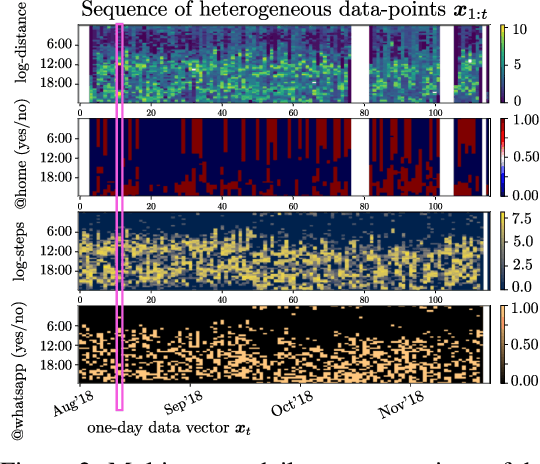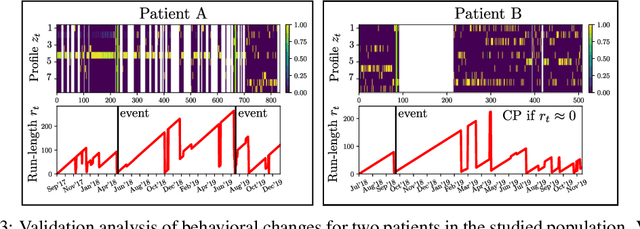Lorena Romero-Medrano
Passive detection of behavioral shifts for suicide attempt prevention
Nov 14, 2020


Abstract:More than one million people commit suicide every year worldwide. The costs of daily cares, social stigma and treatment issues are still hard barriers to overcome in mental health. Most symptoms of mental disorders are related to the behavioral state of a patient, such as the mobility or social activity. Mobile-based technologies allow the passive collection of patients data, which supplements conventional assessments that rely on biased questionnaires and occasional medical appointments. In this work, we present a non-invasive machine learning (ML) model to detect behavioral shifts in psychiatric patients from unobtrusive data collected by a smartphone app. Our clinically validated results shed light on the idea of an early detection mobile tool for the task of suicide attempt prevention.
Multinomial Sampling for Hierarchical Change-Point Detection
Jul 24, 2020



Abstract:Bayesian change-point detection, together with latent variable models, allows to perform segmentation over high-dimensional time-series. We assume that change-points lie on a lower-dimensional manifold where we aim to infer subsets of discrete latent variables. For this model, full inference is computationally unfeasible and pseudo-observations based on point-estimates are used instead. However, if estimation is not certain enough, change-point detection gets affected. To circumvent this problem, we propose a multinomial sampling methodology that improves the detection rate and reduces the delay while keeping complexity stable and inference analytically tractable. Our experiments show results that outperform the baseline method and we also provide an example oriented to a human behavior study.
 Add to Chrome
Add to Chrome Add to Firefox
Add to Firefox Add to Edge
Add to Edge